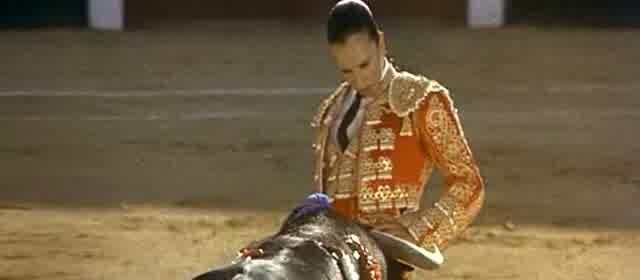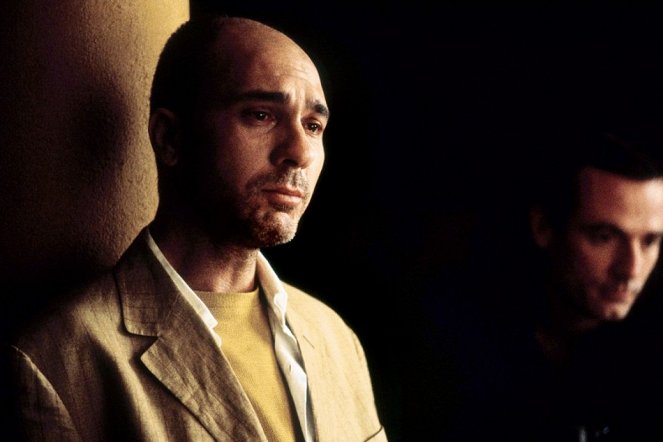Realização:
Pedro AlmodóvarArgumento:
Pedro AlmodóvarCâmara:
Javier AguirresarobeMúsica:
Alberto IglesiasElenco:
Javier Cámara, Darío Grandinetti, Leonor Watling, Rosario Flores, Geraldine Chaplin, Fele Martínez, Paz Vega, Elena Anaya, Lola Dueñas, Ana Fernández (mais)Streaming (1)
Conteúdos(1)
The curtain of salmon colored roses and heavy gold fringing which covers the stage is pulled back to reveal a Pina Bausch spectacle, “Café Müller.” Among the spectators, two men are sitting together by chance. They don’t know each other. They are Benigno (a young nurse) and Marco (a writer in his early forties). On the stage, filled with wooden chairs and tables, two women, their eyes closed and their arms extended, are moving to the music of “The Fairy Queen,” by Henry Purcell. The piece is so moving that Marco starts to cry. Benigno can see the gleam of his chance companion’s tears, in the darkness of the stalls. He’d like to tell him that he too is moved by the spectacle but he doesn’t dare. Months later, the two men meet again at “El Bosque,” a private clinic where Benigno works. Lydia, Marco’s girlfriend and a bullfighter by profession, has been gored and is in a coma. It so happens that Benigno is looking after another woman in a coma, Alicia, a young ballet student. When Marco walks by the door of Alicia’s room, Benigno doesn’t think twice before speaking to him. It’s the start of an intense friendship... as lineal as a roller coaster. During this period of suspended time between the walls of the clinic, the lives of the four characters will flow in all directions, past, present and future, dragging all of them towards an unsuspected destiny. (texto oficial do distribuidor)
(mais)Vídeos (1)
Críticas (4)
Almodóvar gives hope even to the greatest desperates with any disturbance with his drama and with just one scene, he is able to express the essence of a character to the viewer without a single word. With his approach, he tries to get closer to understanding women and does so through two human and completely believable male characters. In addition, several unexpected plot twists surprise the viewer, especially the main one roughly half an hour before the end completely changes the whole tone of the film, and the viewer desperately awaits the unpredictable resolution. 90%
()
A look at relationships from different perspectives according to Almondóvar in his best, most accessible and probably most honest film.
()
Every time I watch it, I adore this strangely intimate story of human communication, silence and non-fulfillment more and more. Almodóvar works brilliantly with the dynamics of the narrative, the musical inserts give everything a wonderfully slow and deep pace, creating a deep wake of melancholy, into which the stories of Benigno, Marc, Alicia and Lydia fit perfectly. The strange chemistry of two male actors, which absolutely lacks testosterone, silent women, an elusive silent film about unfulfilled desire... a mixture that is more than weird, but also more than masterfully directed all the way to very end, and which, despite that it is bittersweet, does not slip into cheap gestures and literally dances in the rhythm of flamenco somewhere deep in my memory. It is not worth looking for any message or complete meaning in Talk to Her - the only meaning of this film is just an inner and unfinished dialogue with the viewer. Well, I've had this dialogue five times and it's always been inspiring.
()



Publicidade